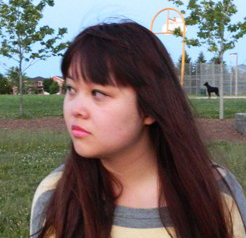Cool job: Television producer
Tassie Cameron (BA 1991 Trinity) spent almost a decade working in the television industry in New York. Since moving back to Toronto, she has written for several TV shows, including CTV’s teen drama Degrassi: The Next Generation and prime-time series The Eleventh Hour, as well as serving as co-executive producer of police drama Flashpoint. Her credentials as a top television producer continue to grow with her latest gig as showrunner for cop series Rookie Blue, which will be airing its fifth season in summer 2014.
How did you get into television?
When I finished my undergraduate degree at U of T, I did graduate work in New York and Paris – at the time, it was really just an excuse to travel. But when I was in New York, I got to know the industry quite well. I felt like I was in the right business, but not doing what I wanted to do, which was writing – so I moved back to Toronto and went to the Canadian Film Centre to learn my craft as a writer.
What were some of the realities you had to face when trying to break into the industry as a writer?
Oh, the usual – nobody wants to read what you’ve written, and nobody thinks you’re good at it because you’re new. However, having worked and lived for 10 years gave me something to write about, as opposed to a lot of kids that are fresh out of school and trying to dive straight into writing without having really seen the world. Aside from travelling, I had worked in every job possible in the television industry while I was in New York – from office management to post-production.
What is it like to be a television writer?
Have you heard of the myth of Persephone, where she spends half of the year above ground and the other half in the underworld? You go “under” for your season – which is typically six to eight months – and you do nothing but focus on that. Then you kind of emerge at the end of it and take a few months to smell the flowers, get a life and start exercising again. And then you have to do it all over again.
Can you give us a day in the life?
We usually spend time in the studio, but what we do varies from day to day. We may be working with other writers, talking to the actors, collaborating with the wardrobe team, doing post-production in the edit suite, or meeting with executives from our network. Some days, we’re writing at home. One day can look very different from the next.
How did you come up with the story concept for Rookie Blue?
It was an idea that came about while my partner, Ilana Frank, and I were researching for a different show. We met with a consultant who told us he was a mentor to a rookie cop. That really got us thinking about how there wasn’t a series about “newbies” on the job – these are kids running around with guns on their belts, who are responsible for looking after our safety.
Now that Rookie Blue is into its fifth season, where do you find inspiration to continue the storyline?
It’s fun to watch our characters grow, and that always gives us inspiration because we get to do more with them. They become more complex as they gain experience, so we can experiment with darker storylines. Getting authentic stories from real police officers is also important because it keeps us honest. Every season, just when we think that there can’t possibly be 13 more stories we haven’t told already, we meet a cop who proves us wrong. It’s amazing.
What do you think is the best written show on television right now?
House of Cards is pretty great, but I still think that The Sopranos, The West Wing, and The Wire are three of the most beautifully written shows ever made – authentic, thrilling, surprising, and with honest dialogue. There are moments that I often go back to for inspiration.
What kind of advice would you give to aspiring TV writers?
Watch TV. It may sound obvious, but you wouldn’t believe the number of aspiring television writers who admit that they don’t really watch TV – that always boggles my mind. You have to consume excellent work in the medium that you’re interested in working with, and you have to be prepared to work harder than everybody else.
Read more about Tassie Cameron at alumni.utoronto.ca/portrait/tassie-cameron
Recent Posts
U of T’s 197th Birthday Quiz
Test your knowledge of all things U of T in honour of the university’s 197th anniversary on March 15!
Are Cold Plunges Good for You?
Research suggests they are, in three ways
Work Has Changed. So Have the Qualities of Good Leadership
Rapid shifts in everything from technology to employee expectations are pressuring leaders to constantly adapt






